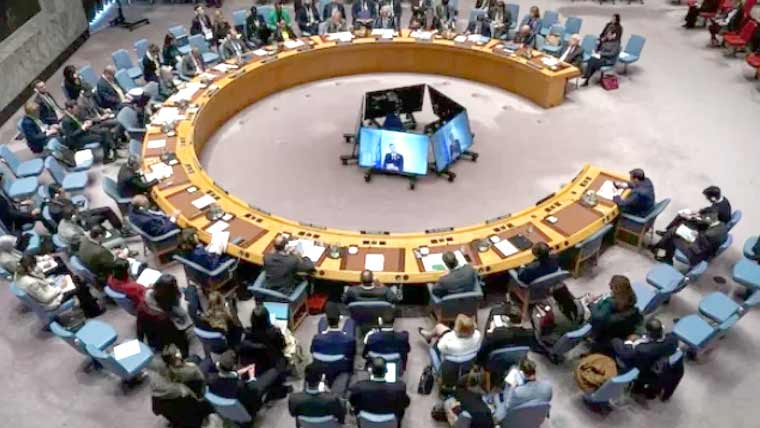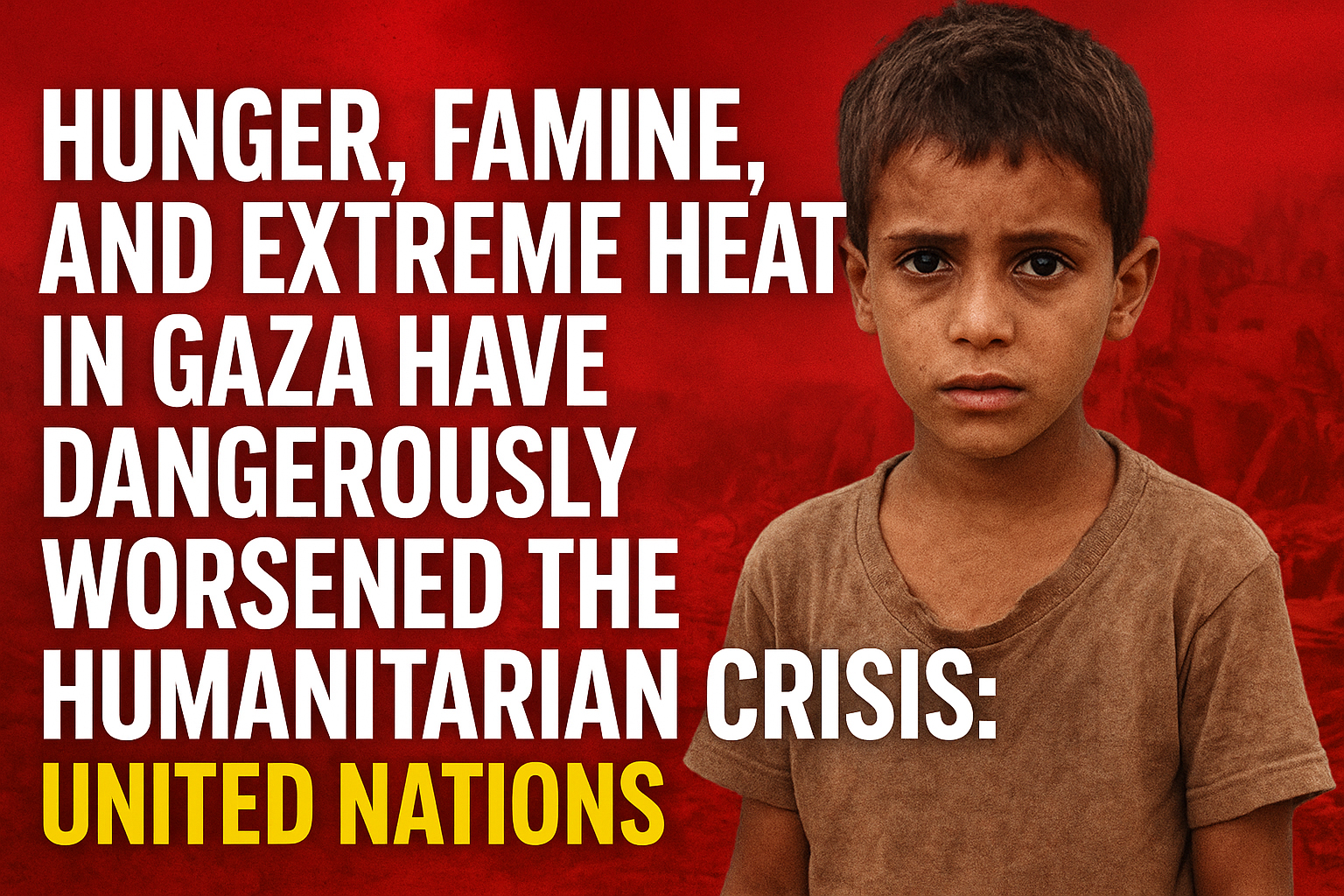
The United Nations has warned that Gaza is facing an increasingly dire humanitarian crisis as hunger, famine, and extreme heat combine to create unbearable living conditions for the civilian population.
UN Raises Alarm
According to a recent UN report, the situation in Gaza has reached critical levels. With ongoing shortages of food, clean water, and medical supplies, many families are struggling to survive. The summer heatwave has only intensified the suffering, as temperatures soar and access to electricity for cooling systems remains scarce.
“The combination of hunger, famine, and extreme heat has dangerously escalated the humanitarian emergency in Gaza,” a UN spokesperson said. “People are facing severe malnutrition, dehydration, and worsening health conditions. Children and the elderly are particularly at risk.”
Impact on Civilians
Civilians in Gaza are enduring some of the harshest living conditions in recent memory. Long queues for food aid have become a daily reality, while hospitals, already under immense strain, report increasing cases of heat-related illnesses. Many households lack access to clean drinking water, forcing residents to rely on unsafe sources.
Residents also face extended power outages, making it nearly impossible to operate fans, refrigerators, or medical equipment. With temperatures continuing to rise, aid groups warn of a possible surge in deaths from heatstroke and waterborne diseases.
Calls for Immediate Action
Humanitarian organizations are urging the international community to step up assistance and ensure the flow of aid into Gaza. The UN has called for immediate action to provide food supplies, clean water, medical resources, and fuel to run hospitals and essential infrastructure.
“The situation cannot wait,” the UN stressed. “Every delay in delivering aid means more lives at risk.”
Global Reactions
International leaders and aid groups have expressed concern over the worsening conditions. Relief agencies warn that if urgent steps are not taken, Gaza could face a humanitarian catastrophe on an unprecedented scale. Appeals for funding and support have been renewed, but challenges in accessing affected areas continue to hinder relief efforts.



